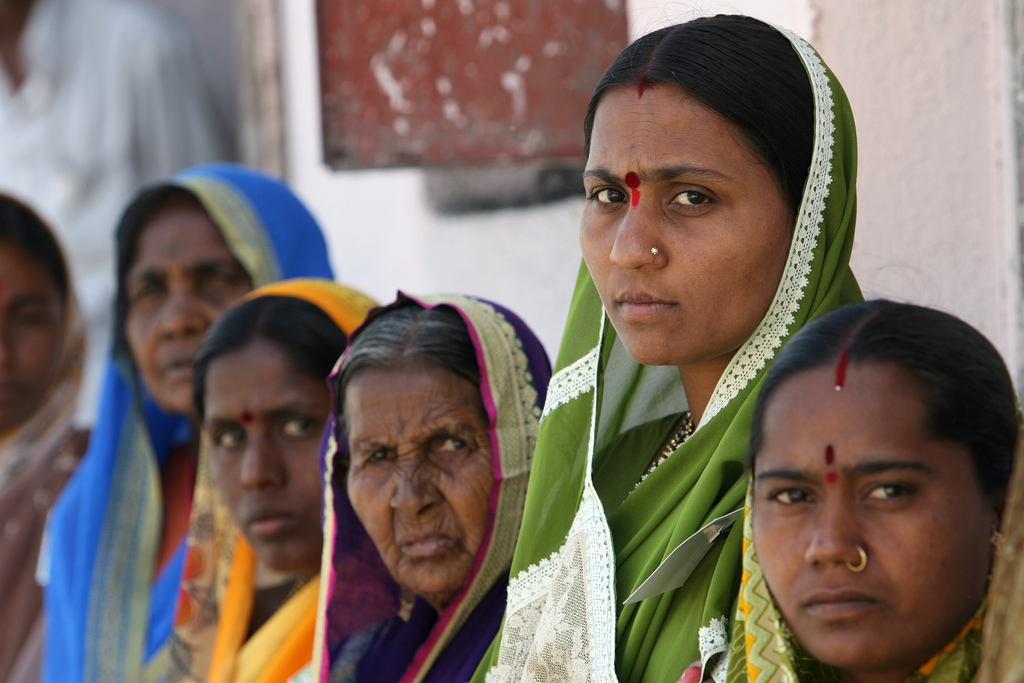A decision earlier this week by a Delhi court that forcible sex between a husband and wife doesn’t constitute rape highlights an issue that has been increasingly part of India’s policy conversation during this campaign season — violence against women, in particular, and gender equality, more generally. ![]()
The brutal rape and murder of a 23-year old in Delhi in December 2012 caused a national sensation and an outpouring of sympathy and anger. The governing Indian National Congress (Congress, भारतीय राष्ट्रीय कांग्रेस) was immediately met with calls for legislation designed to increase urban safety for women and to institute stricter criminal penalties for rape. The girl, whose name was initially withheld from media reports, has come to be known by many pseudonyms, the most common of which is ‘Nirbhaya,’ which means ‘fearless one’ in Hindi.
In March 2013, following the conclusions of a panel committee established to consider legal reforms, India’s parliament enacted new, stronger anti-rape laws. Although the laws lengthened jail sentences for rape and related crimes and introduced the death penalty for repeat offenses, they also created new offenses, such as stalking and voyeurism, which weren’t previously illegal. The laws also expand the definition of rape, and they relax some of the burdens required for a conviction — for instance, a victim no longer has to prove physical struggle to show lack of consent.
Critics of the new laws argue that they still aren’t strong enough. For example, marital rape is still not illegal. Moreover, the legal reforms did nothing to address Section 377 of the Indian penal code, which criminalizes same-sex conduct, a statute that the Indian supreme court upheld last December, nor do they particularly address the challenges of transgendered Indians. (Though the Indian supreme court a month ago recognized transgender as a third gender category in a ruling that LGBT advocates hailed as a landmark decision.)
* * * * *
RELATED: Is there a potential parliamentary path to amending Section 377 in India?
* * * * *
Even as activists worry that the current government’s steps don’t go far enough, they also worry that a government led by Narendra Modi and the conservative, Hindu nationalist Bharatiya Janata Party (the BJP, भारतीय जनता पार्टी) could be even worse. Exit polls, though not incredibly accurate in the past, forecast a strong Modi victory when election results are announced on May 16.
* * * * *
RELATED: In-Depth: India’s Elections
* * * * *
Both Modi and Rahul Gandhi, who is leading the Congress election effort, have railed against sexual violence and invoked the memory of Nirbhaya in their campaign rallies. But whether you prefer Modi or Congress depends on your perspective about the roots and causes of sexual violence in India. Continue reading Indian court ruling highlights women’s issues in election campaign
